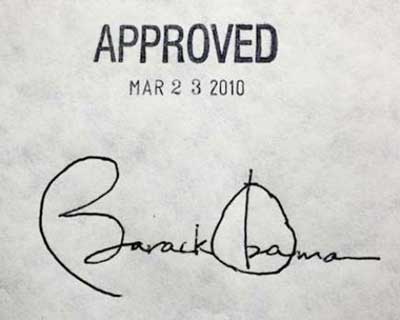
President Trump threatened during his campaign that there would be “full repeal of Obamacare” on “day one of the Trump Administration.” But, rather than an across-the-board dismantling of the Affordable Care Act (ACA), President Trump should consider preserving some of its foundational components, and build upon those instead. The ACA, if improved upon, has the potential to reduce healthcare disparities among Americans by broadening access to high-quality care and expanded insurance coverage.
President Trump’s healthcare reform agenda involves the systematic deconstruction of the ACA. His first step will be the elimination of the individual mandate. He deems that “no person should be required to buy [health] insurance unless he or she wants to.” I firmly disagree with him; I think everyone should have healthcare coverage, regardless of whether they want it or not. Medical care is a basic human need, and healthcare should be mandatorily appropriated to every individual.
 How each individual’s healthcare coverage is paid for is the real focus of this problem. I think those who can afford coverage should be required to purchase it. If they decide not to–because they think they won’t get sick or that “the state” (ie, taxpayers) would take care of their medical expenses if they did—they should be subject to the economic penalties currently imposed by the ACA. The ACA, however, also penalizes the working poor whose income is marginally above the Medicaid cut-off threshold, and who cannot afford healthcare. So there really should be some tax law changes that ease the financial burden put on lower-income individuals.
How each individual’s healthcare coverage is paid for is the real focus of this problem. I think those who can afford coverage should be required to purchase it. If they decide not to–because they think they won’t get sick or that “the state” (ie, taxpayers) would take care of their medical expenses if they did—they should be subject to the economic penalties currently imposed by the ACA. The ACA, however, also penalizes the working poor whose income is marginally above the Medicaid cut-off threshold, and who cannot afford healthcare. So there really should be some tax law changes that ease the financial burden put on lower-income individuals.
While President Trump wants to prevent people from being financially penalized for making what he believes should be a choice, he risks the possibility that millions of Americans would live without healthcare coverage. He does not, with this thinking, give consideration to what the devastating personal financial implications would be for such an individual should he/she develop a catastrophic illness.
Also, without mandatory health insurance, it is possible, or even likely, that fewer people would spend money to undergo preventive health measures, such as screening tests like the mammogram, the PAP test, or the screening colonoscopy. It is known that disease detection in its early stage costs less to treat. If voluntary healthcare deniers present with advanced disease that could have been found earlier on, it would place an avoidable heavy financial burden on the healthcare system–not to mention, and perhaps even more importantly, it would worsen the prognosis of the individual, and there would be a lesser likelihood of cure.
Thus, instead of a focus on optional healthcare policies, President Trump should set multiple parameters to individualize a person’s or family’s financial ability to contribute to their healthcare insurance premiums. It could be modeled after the process of how families apply for college financial aid. If people believe that their healthcare contribution would be determined after all other important financial obligations were carefully considered, I expect they would less reluctant to submit to mandatory healthcare coverage, and would see that it would be in their best interest to be financially protected should they get sick.
I also disagree with his proposal to allow for the sale of health insurance across state lines. Can anything be more confusing than that?
While President Trump states this would further expand the scope of competition amongst health insurance companies that could drive down insurance premiums, it could only further ridiculously confuse how doctors and hospitals would put in claims for payment. It could definitely risk denial or compromise of payments from state to state given the differential in the cost of healthcare amongst the states. It could even conceivably lead to the denial of certain tests or treatments in more “expensive” states than in less expensive states.
If Congress were to pass a law enabling New Yorkers to buy healthcare coverage from Montana, would that mean these people would be somehow penalized by the private health insurance company for “electing” to receive their care in New York?
In addition, the number of “options” an individual would have to sift through—and understand—would be daunting. It takes to search out and differentiate the healthcare coverage choices, and if you are ill, you may not have this time.
Finally, this proposal does not inform of a clear ACA replacement plan. That’s because there is no clear plan, and this is extremely problematic, especially since he stated in mid-January that the ACA would be repealed by the end of the month. Under such time constraints, it was difficult for Congress to craft a comprehensive, effective reform bill. This may be why the plan announced recently, on January 23rd, by four Republican senators appears confusing and questionable. The plan allows for individual states decide whether or not they’d keep the ACA in place. But, wouldn’t such a plan lead to disunity among the states?
And wouldn’t that actually not be considered a full repeal, but more like a weak compromise that would upset both the Republicans, who want to entirely rid of the ACA, and the Democrats, who conversely want it in its entirety?
As I finish writing this, I realize that there is one thing though that is crystal clear to me—that the future of healthcare currently looks like a murky mess under the Trump administration.
Leave a Reply